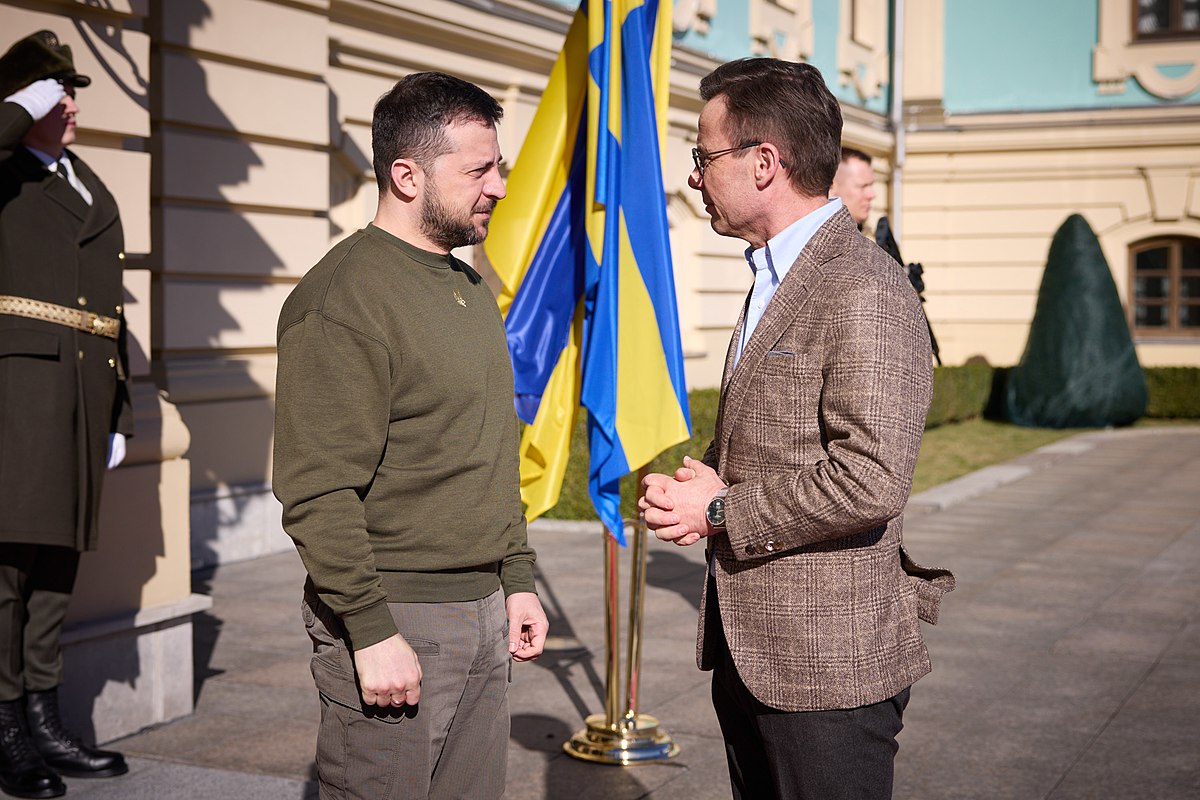Despite difficulties, Sweden prepares for NATO integration

Prime Minister Ulf Kristersson of Sweden meets with President Volodymyr Zelenskyy of Ukraine, 2023.
The war in Ukraine has pushed Sweden to reevaluate its geopolitical code and pursue NATO membership.
Jonah Carlson - Beginning last year, following the outbreak of the war in Ukraine, Sweden has attempted to join NATO. Finland was able to join the alliance with relative ease. However, Sweden has struggled to do the same, mostly due to its strained relationships with another member of the NATO alliance, Turkey. Despite this, as Steven Erlanger indicated in an article with The New York Times in early June, Sweden is attempting to shift its geopolitical code to better suit NATO interests before being introduced to the alliance.
Geopolitical codes dictate how actors, such as states, behave in relationships with others. Such codes dictate who allies and adversaries are for any given state. Since the outbreak of the Ukraine war, Sweden has shifted to consider Russia a noteworthy adversary and NATO membership an important opportunity for their defense. Prime Minister Ulf Kristersson’s recent announcement that his government would allow NATO forces to “undertake preparations… to enable future joint operations” on Swedish territory, despite not being a formal member of the alliance, demonstrates Sweden’s desire to signal their geopolitical code to its neighbors. Now the only state on the Scandinavian peninsula not yet a NATO member, such a move aims to formalize Sweden’s geopolitical code by reducing friction between itself and NATO. Additionally, Sweden’s announcement demonstrates the heightened security tensions in Europe since the war’s beginning, which has encouraged the entire region to reevaluate, alter, or solidifying new and preexisting geopolitical codes.
Despite this, Sweden still faces roadblocks to full membership, primarily from Turkey. To understand why, it is important for one to understand national identities. Sweden currently hosts individuals associated with the Kurdistan Workers’ Party, an armed political group associated heavily with Kurdish nationalism that Turkey considers to be a terrorist organization. The interplay between Turkish and Kurdish national identities continues to play an important role in Turkish politics today, which shapes Turkey’s geopolitical codes with both its Middle Eastern and European neighbors.
Photo source. President Of Ukraine from Україна, CC0, via Wikimedia Commons.

